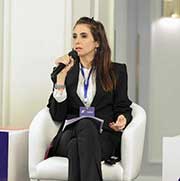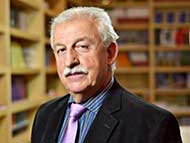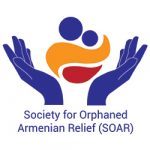SOAR - Buenos Aires Chapter
Buenos Aires joined the SOAR family in November 2016. A majority of Armenians arriving to Argentina in the 1920s originated from Cilicia of the Ottoman Empire, leaving their homeland because of the Armenian genocide. The Armenian community of Argentina has maintained its identity because of the church, school and the family structure. Currently, the Armenian community of Argentina has nine Armenian churches. Between 70,000 and 135,000 ethnic Armenians live in Argentina, the largest Armenian population in Latin America and one of the largest in the world.
BOARD OF DIRECTORS:

Luciana Minassian
President
Luciana Minassian is currently an assistant professor to International Law, Emiliano Buis chair, University of Buenos Aires, Law School. She is also currently working on legal aspects of Artsakh 2020´s war, mainly in cases for war crimes and crimes against humanity. Her collaboration with colleagues from Armenian diaspora lawyers associations is raising awareness for prisoners of war (POWs) and pushing for claims submitted to international bodies such as the UN, Council of Europe, and letters to the Vatican. Luciana has been working to provide support and cooperation with families of fallen soldiers since 2020 and assisting families of POWs in their everyday needs.
Adding to her current endeavors, Luciana is also working on Israel and Palestinian issues, as well as the invasion of Ukraine.
Luciana had recently served as the Assistant professor to Legal Aspects of Armenian Genocide Course, and former Assistant professor to the chair of Holocaust, Genocides and anti-discrimination, also at the University of Buenos Aires. Her other past work included collaborating with Argentinean friends of Hebrew University of Jerusalem, and the Raoul Wallenberg Foundation.
Luciana is a member of the Armenian Women´s Bar Association, the National Congress of Western Armenians, and of the World Association of Armenian Lawyers.

Carolina Ouzcouchian
Carolina Ouzcouchian is an International Relations student at the Catholic University of Argentina (UCA). Carolina possesses a profound knowledge of Armenian cultural and religious expressions. She is committed to promoting Armenian cultural projects, including cinema, literature, as well as classical and folkloric music. She is also actively engaged in learning about and shaping her deep understanding of the geopolitical processes and conflicts of the Caucasus and the Middle East. Carolina is currently collaborating, alongside Luciana Minassian, with colleagues from Armenian diaspora lawyers’ associations in raising awareness for prisoners of war (POWs) and pushing for claims submitted to diverse international bodies.
HONORARY ACADEMIC BOARD:

León Carlos Arslanian
Lawyer graduated from the University of Buenos Aires, Faculty of Law.

Professor Adolfo Koutoudjian
Lic. Adolfo Koutoudjian is an esteemed Argentinian geographer and expert in Regional Economics, International Relations, and Geopolitics.




